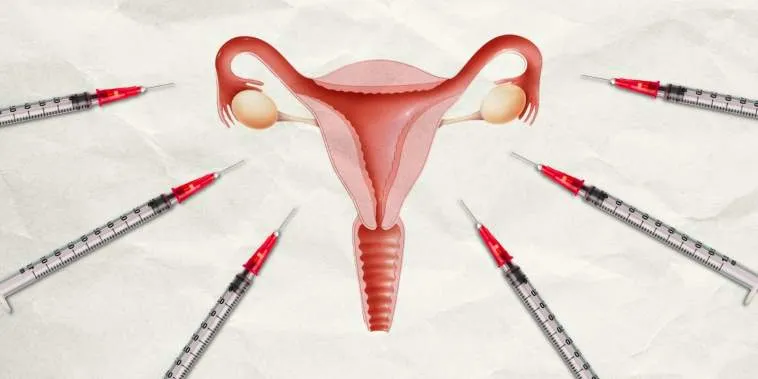(The National Pulse) COVID-19 vaccinations carry an increased risk of menstruation disturbance by up to a staggering 41 percent, according to a recent study conducted by the British Medical Journal (BMJ).
The BMJ Report.
The study involved three different vaccines – namely, Pfizer/BioNTech, Moderna, and AstraZeneca. The study analysed how they impacted female menstruation both before and after menopause over two time frames. The first was between one and seven days, the second between eight and 90 days.
The objective of the study was, according to the BMJ, to “evaluate the risks of any menstrual disturbance and bleeding following SARS-CoV-2 vaccination in women who are premenopausal or postmenopausal.”
It found that for postmenopausal women who received the Pfizer/BioNTech vaccine, there was an increased risk of menstrual disturbances by 41 percent between one to seven days after the third dose compared to the unvaccinated, and a 23 percent increase after between eight to 90 days.
For Moderna, the risk was 33 percent higher from the first dose after one to seven days and eight to 90 days after the third.
As for AstraZeneca, the risk of problems was 24 percent higher than the unvaccinated after one to seven days and 21 percent after the second vaccine.
The results were based on a study period from December 2020 to February 2022, and considered just under 3 million women in Sweden, 87.6 percent of which received at least one covid vaccination, with another 64 percent getting three doses.
Premenopausal Women.
For premenopausal women, the report found “that adjustment[s] for covariates almost completely removed the weak associations noted in the crude analyses.” But as Thorsteinn Siglaugsson explains in an article for the Daily Skeptic:
“…[f]or premenopausal [women] the “weak associations” were removed after adjustment for covariates. Why those huge adjustments? Before adjustment they found statistically significant increases of up to 44% – but that top figure was ‘adjusted’ away to just 4 [percent]… Yet even after these heroic adjustments, there was still a 25 [percent] increase in menstrual disturbance following the first dose.”
This may, indeed, confirm the assertion of Siglaugsson that there has been a concentrated effort to “downplay” the results of the study by the very same people who conducted it. The researchers for the BMJ suggest there are only “weak and inconsistent associations” between vaccinations and menstrual problems.
Competing Interests.
The “adjustments” to the data should be considered hand-in-hand with the “competing interests” declaration of the study itself, which states:
MG reports personal fees from AstraZeneca, Gilead, GSK/ViiV, MSD, Biogen, Novocure, Amgen, Novo Nordisk, outside the submitted work. SL reports consulting for Scandinavian Biopharma and is an employee of AstraZeneca since 16 January 2023. The work in this article was performed before this employment commenced. FN reports prior employment at AstraZeneca until 2019, and ownership of some AstraZeneca shares. MB and YX declare no competing interests. AS reported participating in research funded by governmental agencies, universities, Astellas Pharma, Janssen Biotech, AstraZeneca, Pfizer, Roche, (then) Abbott Laboratories, (then) Schering-Plough, UCB Nordic, and Sobi, with all funds paid to Karolinska Institutet, outside of the submitted work. RL reported receiving grants from Sanofi Aventis paid to his institution outside the submitted work; and receiving personal fees from Pfizer outside of the submitted work.”
The study vindicates claims made by thousands of women since the vaccine roll-outs who feared speaking out about their concerns, best encapsulated by journalist Lara Prendergast’s article in which she says:






